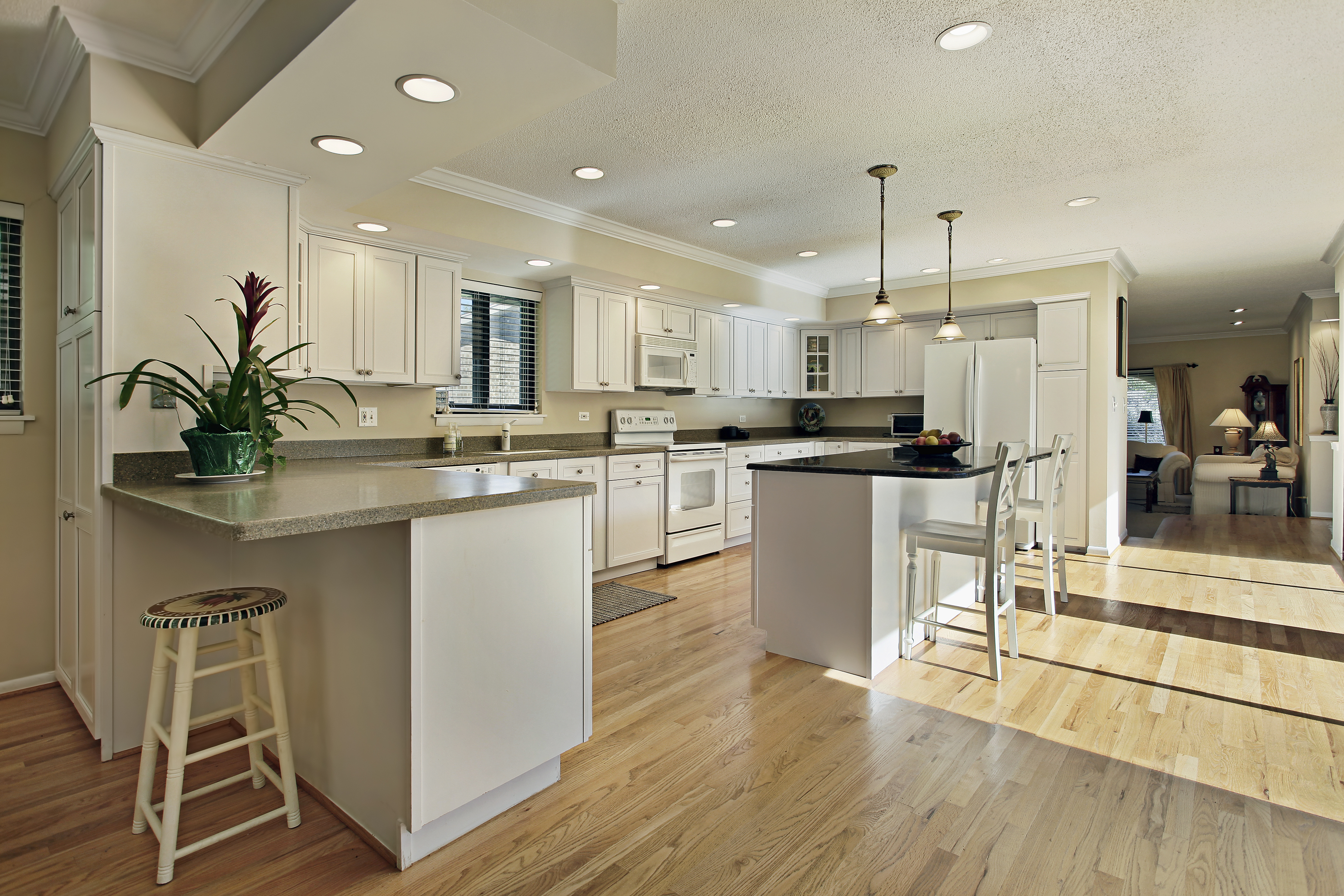Our kitchens are often the busiest place in the home. From cooking, preparing, and eating food to cleaning up the mess and dishes afterward, kitchens feature a lot of regular activity. And it’s this activity that can be tough on floors. While hardwood floors may be aspirational, the number of liquids that are used in the kitchen can cause problems. To figure out whether hardwood is a good choice for this popular room, we’ve put together this list of the pros and cons of hardwood flooring in kitchens.
Pros
Appearance
There’s no doubt that hardwood floors are beautiful. Natural wood provides colours, grain patterns, and textures that are unique – even if there are attempts at replication in other flooring materials. Hardwoods can also be stained to change the colour and bring out or hide the grain pattern to make them more suitable to the kitchen surroundings. If you’re looking for a high-end appearance, it’s difficult to do better than hardwood.
Underfoot Feel
When compared to other flooring materials such as tile or stone, hardwood is much warmer and feels more comfortable underfoot. It’s also often much quieter when being walked on in high heels or shoes with solid soles. If you spend large amounts of time in your kitchen, a hardwood floor may also be easier on your legs and back than other harder materials.
Cons
Susceptibility To Moisture
Often, the biggest complaint about hardwood flooring is its susceptibility to moisture. Considering the amount of water used in a kitchen, this can be a problem. That said, small spills and splashes shouldn’t be a problem if they’re cleaned up quickly. However, if there’s a flood or water is allowed to pool for long amounts of time, it could result in irreparable damage.
Price
Although not necessarily the most expensive type of flooring material available, hardwood is also far from the most economical. One thing that adds greatly to the cost of hardwood flooring is the labour required to install it. Installing hardwood flooring is rarely regarded as a simple DIY job, so it’s generally recommended that it’s done by experienced, and well-paid, professionals.

